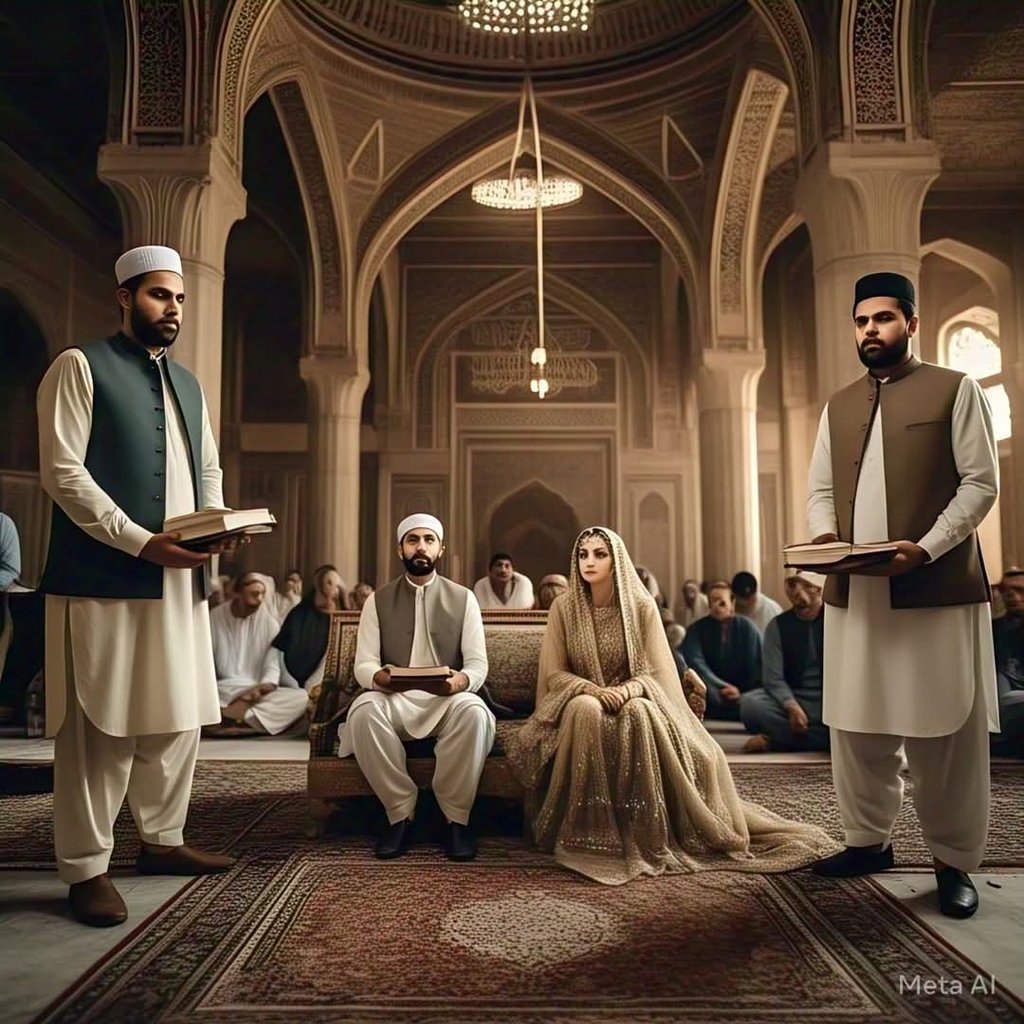Namber of witnesses for Nikah ?
How Much Number of witnesses require for Nikah ?
Muhammad Ali Mughal Family Law Consultant 03274554455
3/17/20252 min read


Namber of witnesses for Nikah ?
How Much Number of witnesses require for Nikah ?
In Islam, the requirement for witnesses in a Nikah (marriage contract) is a well-established condition to ensure the validity and transparency of the marriage. The number of witnesses required is based on Islamic teachings, including the Quran, Hadith, and scholarly consensus. Below is a detailed explanation with Islamic references:
Number of Witnesses Required for Nikah ?
The majority of Islamic scholars agree that two witnesses are required for a valid Nikah. However, there are slight differences among the schools of thought regarding the gender of the witnesses:
1. Two Male Witnesses:
This is the most widely accepted requirement across all major schools of thought (Hanafi, Maliki, Shafi'i, Hanbali). Two adult, sane, and Muslim male witnesses are required to validate the Nikah.
2. One Male and Two Female Witnesses (Hanafi View):
The Hanafi school of thought allows for one male and two female witnesses in certain situations, drawing an analogy from the Quranic requirement for financial transactions (Surah Al-Baqarah 2:282). However, this view is not universally accepted, and most scholars prefer two male witnesses for Nikah.
3.Witnesses to be present but not compulsory
Shi'a Muslims, on the other hand, claim that it is mustababb for the witnesses to be present but not wajib.
Islamic References for Witnesses in Nikah ?
1. Hadith Evidence
The requirement of witnesses for Nikah is clearly established in the Sunnah of the Prophet Muhammad (peace be upon him):
- Hadith in Sahih al-Bukhari and Sahih Muslim:
The Prophet (peace be upon him) said:
"There is no marriage except with a guardian and two witnesses."
This hadith explicitly states that a marriage is not valid without the presence of a guardian and two witnesses.
- Hadith in Sunan Abu Dawood:
The Prophet (peace be upon him) said:
"A woman should not be given in marriage except by her guardian, and the marriage is not valid without two witnesses."
This further reinforces the necessity of two witnesses for a valid Nikah.
2. Quranic Principle
While the Quran does not explicitly mention the number of witnesses required for Nikah, it emphasizes the importance of transparency and witnesses in important contracts. For example:
- Surah Al-Baqarah (2:282):
"And take witnesses whenever you enter into a contract..."
Although this verse refers to financial transactions, scholars derive from it the general principle that important contracts, including marriage, should be witnessed to ensure clarity and avoid disputes.
3. Scholarly Consensus (Ijma)
Islamic scholars across different schools of thought unanimously agree that witnesses are a mandatory condition for the validity of a Nikah. The only minor difference lies in the number and gender of the witnesses:
- Majority View: Two male witnesses are required.
- Hanafi View: One male and two female witnesses are acceptable in certain situations.
-Shi'a Muslims, on the other hand, claim that it is mustababb for the witnesses to be present but not wajib.
Purpose of Witnesses in Nikah ?
The requirement of witnesses serves several important purposes in Islam:
- Transparency: Witnesses ensure that the marriage is publicly acknowledged and not kept secret.
- Legal Protection: Witnesses provide evidence of the marriage in case of disputes or legal issues.
- Social Accountability: Witnesses act as a safeguard to ensure that the marriage is conducted in accordance with Islamic principles.
Conclusion
In Islam, the presence of two witnesses is a mandatory condition for the validity of a Nikah. While the majority of scholars require two male witnesses, the Hanafi school allows for one male and two female witnesses in certain situations. The requirement of witnesses is based on clear evidence from the Hadith and the principles of transparency and accountability in Islamic law.
